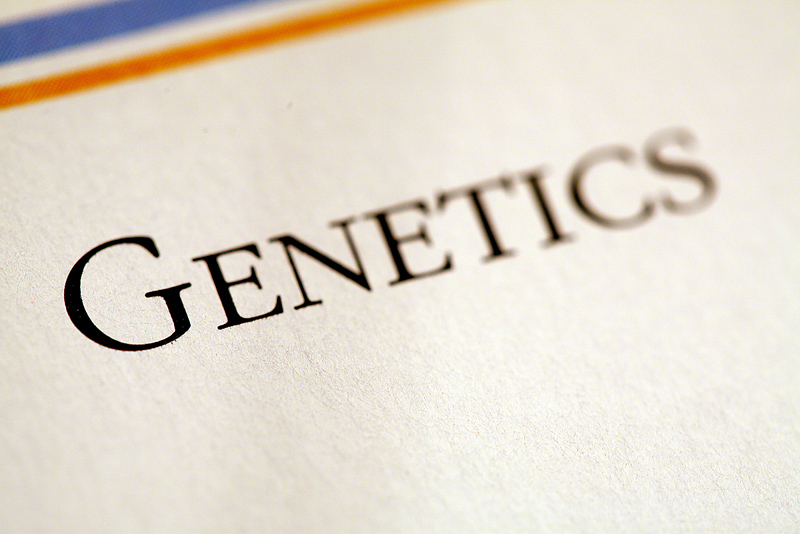
WEDNESDAY, Aug. 6, 2014 (HealthDay News) — Mutated versions of a gene called PALB2 can dramatically increase a woman’s risk of breast cancer, a new study has found.
Women carrying the PALB2 mutation have a one in three chance of developing breast cancer by the age of 70, British researchers report in the Aug. 7 issue of the New England Journal of Medicine.
The risk is even higher for women with a family history of breast cancer, the investigators found.
“If a mutation carrier has a strong family history, the risk would go up to about six in 10 by age 70,” said senior study author Marc Tischkowitz, a researcher with the department of medical genetics at the University of Cambridge.
Those odds place PALB2 just behind the BRCA1 and BRCA2 genes as a top genetic risk factor for breast cancer, Tischkowitz said.
Women who carry a mutated form of either of the BRCA genes have a 45 percent to 65 percent risk of breast cancer by age 70, according to the U.S. National Cancer Institute.
Researchers first identified the PALB2 gene in 2006, and it was further associated with breast cancer in a study published in 2007, Tischkowitz said.
This new study provides the first solid evidence regarding the breast cancer risk associated with PALB2, said Dr. Roger Greenberg, an associate professor of cancer biology with the Abramson Family Cancer Research Institute at the University of Pennsylvania School of Medicine in Philadelphia.
Armed with this knowledge, women with a PALB2 mutation can talk with their doctor about whether they should undergo a mastectomy to reduce their breast cancer risk. Such surgery has been shown to reduce cancer risk by 90 percent, Greenberg noted.
“She can better make that decision based on the likelihood she could get cancer,” Greenberg said. “I would frame it as a very relevant question for PALB2 carriers.”
Doctors also could recommend more aggressive surveillance for breast cancer, such as annual mammograms or MRI breast screening, Tischkowitz said.
About one in every 1,000 women carry the PALB2 mutation, said study co-author William Foulkes, director of the Program in Cancer Genetics at McGill University’s Center for Translational Research in Cancer, located in Montreal.
“It’s not common, but the risks are significant,” Foulkes said. “Particularly for a woman with a strong family history of breast cancer, they may want to find out if they have this mutation.”
Genetic tests for breast cancer already include PALB2 in their panel, Foulkes added.
“In the past few years, it’s become easier to test for a package of genes at once,” he said. “Women who have had a genetic test should go back and check their records. They may have been tested for PALB2 already and not even know it.”
The new PALB2 study involved an international team of researchers from 17 centers in eight countries, led by the University of Cambridge. The scientists analyzed data from 362 family members with PALB2 gene mutations from 154 families without BRCA1 or BRCA2 mutations.
Women who carried rare mutations in PALB2 were found to have, on average, a 33 percent chance of developing breast cancer by age 70.
BRCA1, BRCA2 and PALB2 all play an important role in the repair of damaged DNA. “PALB2 interacts with BRCA2, and acts as a kind of a bridge between BRCA1 and BRCA2,” Foulkes explained. Mutation of any of the genes impairs the body’s ability to fix broken DNA, which can lead to cancer.
In a separate study also published in the same issue of the NEJM, doctors identified another gene called MEN1 that is linked to breast cancer.
Mutations of the MEN1 gene can cause a rare inherited cancer of the endocrine glands called multiple endocrine neoplasia, but up to now the gene has not been associated with breast cancer.
Researchers found that women with the disease had more than double the risk of also developing breast cancer.
“If you have multiple endocrine neoplasia, then perhaps more intense breast surveillance may be warranted,” Foulkes said. “But because it’s so rare, you wouldn’t say to a woman with a family history of breast cancer, it’s probably due to MEN1. It’s important for people who have multiple endocrine neoplasia, but probably not for everyone with a family history of breast cancer.”
More information
For more about the BRCA gene, visit the U.S. National Cancer Institute.
Copyright © 2026 HealthDay. All rights reserved.

